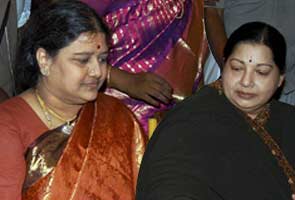 A series of car bombs have killed 13 people and injured more than
500 in the deadliest attacks to hit the insurgency-torn far south of Thailand in
recent years.
A series of car bombs have killed 13 people and injured more than
500 in the deadliest attacks to hit the insurgency-torn far south of Thailand in
recent years.In an apparent escalation of their tactics, suspected militants on Saturday attacked a hotel in Hat Yai, the largest city in southern Thailand and a popular destination for tourists from neighbouring Malaysia and Singapore.
A car bomb in the basement triggered a fire which spread to a shopping mall within the Lee Gardens Plaza Hotel and killed three people, including a Malaysian tourist, according to the police.
Songkhla provincial governor Grisada Boorach said 416 people were injured, mostly suffering from smoke inhalation, and 140 were still in hospital on Sunday.
Until now Hat Yai and Songkhla province have been relatively untouched by the shadowy insurgency that has claimed thousands of lives in the neighbouring Muslim-dominated provinces of Yala, Pattani and Narathiwat since 2004.
The hotel bombing came about an hour after two car bombs minutes apart hit the town of Yala around midday as people were out shopping.
Those blasts killed 10 people and wounded 117 others, officials said.
National police chief General Priewpan Damapong said the hotel bombing was linked to the Yala attack.
"It was a car bomb and it's related to the incident in Yala and I believe that it was the work of the same group," he said in televised remarks.
The Department of Foreign Affairs and Trade says there are no reports of Australians being caught up in bomb blasts in Thailand.
A spokesman says local authorities have confirmed to the Australian Embassy in Bangkok that there are no foreigners among the dead and injured after a bomb attack in the southern town of Yala.
A complex insurgency, without clearly stated aims, has plagued Thailand's far south near the border with Malaysia since 2004, claiming thousands of lives, both Buddhist and Muslim, with near-daily bomb or gun attacks.
However, they are rarely as deadly as Saturday's explosions.
The insurgents are not thought to be part of a global jihad movement but are instead rebelling against a long history of perceived discrimination against ethnic-Malay Muslims by successive Thai governments.
Struggling to quell the unrest, authorities have imposed emergency rule in the region, which rights campaigners say effectively gives the army legal immunity.
 Maria Sharapova will bid for her first title of the season after claiming a roller-coaster victory over Caroline Wozniacki, 4-6, 6-2, 6-4 on Thursday for a place in the final of the Miami Masters.
Maria Sharapova will bid for her first title of the season after claiming a roller-coaster victory over Caroline Wozniacki, 4-6, 6-2, 6-4 on Thursday for a place in the final of the Miami Masters.


















